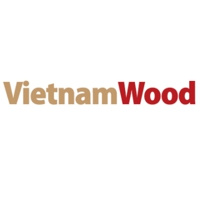- Read all
- Rice
- Fisheries
- Cassava
- Fertilizer & Pesticide
- Coffee
- Animal Feed
- Cocoa
- Seed
- Tea
- Wood
- Pepper
- Agricultural Cooperations
- Cashew
- Agricultural Investments
- Rubber
- Governmental Policies
- Sugarcane
- Agricultural Startup Ecosystem
- Corn
- Technological Innovations
- Spices
- Organic Agriculture
- Bean
- Food Manufacturing
- Fruit & Vegetable
- Agricultural Value Chain
- Flower
- Water & Waste Management
- Meat
- Processed Food
- Dairy
- Plant Originated Products
- General Agro Commodities
- Animal Originated Products
What is the solution to revive the sugar industry?
January 24, 2022

The sugarcane growing area has decreased sharply in recent years. Photo: Thanh Son.
Sharp decline
According to the report "Vietnam Sugar Industry Supply Chain" presented at the Webinar "Towards the sustainable development of Vietnam's sugar industry" on January 21, the size of the sugar industry is decreasing sharply. Sugarcane growing area decreased from more than 274 thousand hectares in 2016/17 crop to nearly 151 thousand hectares at present, equivalent to a decrease of over 45%.
Also, in 2017-2021, sugarcane yield decreased from 64.8 tonnes per hectare to 61.5 tonnes per hectare. The number of households participating in sugarcane cultivation decreased from nearly 219.5 thousand households to just over 126,000 households; The number of sugar mills from 38 factories decreased to 29 factories; Sugar production will fall from 1.24 million tonnes to 0.77 million tonnes in 2021, equivalent to a decrease of 38%.
On the contrary, the amount of sugar imported into Vietnam is increasing. Import volume in 2020 increased by nearly 340% compared to 2019.
In the period 2017-2020, on average, Vietnam has to import 1.2-1.8 million tonnes of sugar each year, of which official imports account for nearly 30-90% of the total import volume, depending on the year; the rest (10-70%) is smuggled sugar.
According to the authors of the report "Supplies of Vietnam's sugar industry," the decline in the size of the sugar industry is due to many factors, of which the most critical factor is the low competitiveness of the industry, especially in the context of international integration when tariff barriers are removed, allowing imported sugar at exceptionally competitive prices from Thailand to be imported into Vietnam.
The decline in the industry's size also has to mention some internal factors that are the cause of the unsustainable supply chain.
Firstly, sugarcane growers, mainly households, play a leading role at the top of the supply chain, supplying most raw sugar cane to the processing plants. However, the role, position, and especially the benefits of households participating in the chain are minor compared to other groups participating in the chain.
Purchasing raw sugar cane is unfair competition between factories, often in cooperation with sugarcane traders. As a result, the linkage contracts between households and factories are broken. The source of factory input materials is not guaranteed, creating distrust between the parties involved in the association.
Stakeholders such as local authorities, Vietnam Sugar Association, and Vietnam Farmers' Union can solve the above problems. But so far, most of these agencies and organizations have not gotten in.
In addition, Vietnam's sugar industry's processing and production management costs are currently higher than Thailand's at 30%, 183.4%, and 52.9%, respectively.

Sugarcane growing households need to link up into cooperative groups and cooperatives. Photo: Thanh Son.
Necessary solutions
First of all, the Government needs to issue specific policies on-chain linkage in the sugarcane industry. This policy should ensure that sugarcane growers are given the highest priority, with benefits being shared equally among the parties involved, ensuring that the benefits of sugarcane growers account for about 60-70%, while the rest (30-40%) belongs to processing factories;
At the same time, it increases competitiveness in production. This can be achieved by promoting the formation of linkages between sugar mills and sugarcane growers and between producing households to form groups, groups, and cooperatives to link with other sugar factories, as well as between factories, to create an environment of fair and fair competition;
Besides, it is to improve competitiveness in processing and consuming products by effective mechanisms to minimize unfair competition between factories and in the current system of traders, and at the same time to improve the economic value of by-products in the sugar industry.
Authorities from the central to local levels need to strengthen import control, especially for smuggled sugar sources, which directly affect the sugar industry's competitiveness. There is a need for more effective inspection and supervision mechanisms, both at the central and local levels, to definitively address this situation in the future.
The sugar industry is in dire need of an overall and objective assessment of the industry's competitive advantages, including the competition between sugarcane and other crops using the same land fund.
Guarantee benefits for sugarcane growers
Mr. Ho Thanh Bien, a sugarcane farmer in Tay Ninh province, said that they currently do not know the real value they make because there is no transparent mechanism to evaluate the quality of sugarcane delivered to factories.
According to Dr. Cao Anh Duong, Director of the Vietnam Sugarcane Research Institute, due to lack of transparency, sugarcane farmers cannot negotiate prices, do not know sugar, do not know the amount of money they will receive… It is a big paradox in the sugarcane farming industry today.
Therefore, the need for a transparent mechanism in the formation of organizations representing sugarcane growers to protect the interests of farmers is essential because sugarcane growers play a vital role for the sugar industry when taking on almost the entire supply of raw cane.
Mr. Vo Van Luong, Nghe An Sugar Company Limited (NASU), said that in linking with sugarcane growers, transparency is most important while always ensuring accuracy in measuring sugar. In addition, the policy of supporting inputs and transferring technical advances to farmers is maintained. Over the years, NASU has always worked closely with the Vietnam Sugar Research Institute to bring suitable varieties, and technological advancements and help farmers deploy them in the easiest way to apply, lowest cost, best profit.
Translated by Ha Phuc
Source: nongnghiep.vn
Related news
-
Growing organic oranges is difficult to do but the price is twice as high
Tuyen Quang In this year's orange crop, organic orange growers in Ham Yen district (Tuyen Quang) earned hundreds of millions of dong in profit because oranges were well priced and accepted by the demanding market.November 24, 2022 -
Heighten Vietnam - USA cooperation relationship through agriculture
(VAN) Through 8 proposals to the new US Agricultural Counselor, Deputy Minister Nguyen Hoang Hiep hoped that trade between the two countries would soon regain its growth momentum.November 23, 2022 -
World wheat prices soar, India seizes export opportunities
India completed deals to export half a million tonnes of wheat in recent days and is expected to sign more contracts to take advantage of record-high global prices.November 22, 2022
Events See more

Vietnamplas 2022 - Vietnam International Plastic and Rubber Industry Exhibition
23-03-2023 - 26-11-2022 09:00 - 17:00
Saigon Exhibition and Convention Center (SECC) – 799 Nguyen Van Linh Boulevard, District 7, City. Ho Chi Minh.

GROWTECH EXPO - FLORAPLANTEXPO 2021
02 - 05-11-2022 09:00 - 17:00
Saigon Exhibition and Convention Center (SECC) – 799 Nguyen Van Linh Boulevard, District 7, City. Ho Chi Minh.

VTG 2022
18 - 25-10-2022 09:00 - 17:00
Saigon Exhibition and Convention Center (SECC) – 799 Nguyen Van Linh Boulevard, District 7, City. Ho Chi Minh.

VIETSTOCK 2022 - SPECIALISED EXHIBITION OF LIVESTOCK, FEED AND MEAT PROCESSING IN VIETNAM
12 - 14-10-2022 08:00 - 17:00
799 Nguyen Van Linh, Tan Phu Ward, Dist. 7, Hochiminh City, Vietnam

VTG 2022
21 - 27-09-2022 09:00 - 17:00
Saigon Exhibition and Convention Center (SECC) – 799 Nguyen Van Linh Boulevard, District 7, City. Ho Chi Minh.
.png)
VIETFISH 2022
22 - 26-08-2022 09:00 - 17:00
Saigon Exhibition and Convention Center (SECC) – 799 Nguyen Van Linh Boulevard, District 7, City. Ho Chi Minh.
Business Opportunities See more
-
BURANI INTERFOOD is looking for Buyers in Vietnam
Type:
November 22, 2021
-
BURANI INTERFOOD is looking for Buyers in Vietnam
Type: Wholesaling Meat
November 22, 2021
-
BURANI INTERFOOD is looking for Buyers in Vietnam
Type: Wholesaling Meat
November 22, 2021
-
BURANI INTERFOOD is looking for Buyers in Vietnam
Type: Wholesaling Meat
November 19, 2021
-
BURANI INTERFOOD is looking for Buyers in Vietnam
Type:
November 19, 2021
-
Indian purchaser looking for high quality cashew nut kernel from Vietnam
Type: Exporting Cashew
Mar 14, 2016
534
Limitless database of qualified and verified agricultural partners
124
Exclusive buy & sell leads on specific agricultural commodities
24
Agricultural events in Vietnam and Asia Pacific region
Stay informed!
Enter your email address below to receive updates each time we publishes new content
